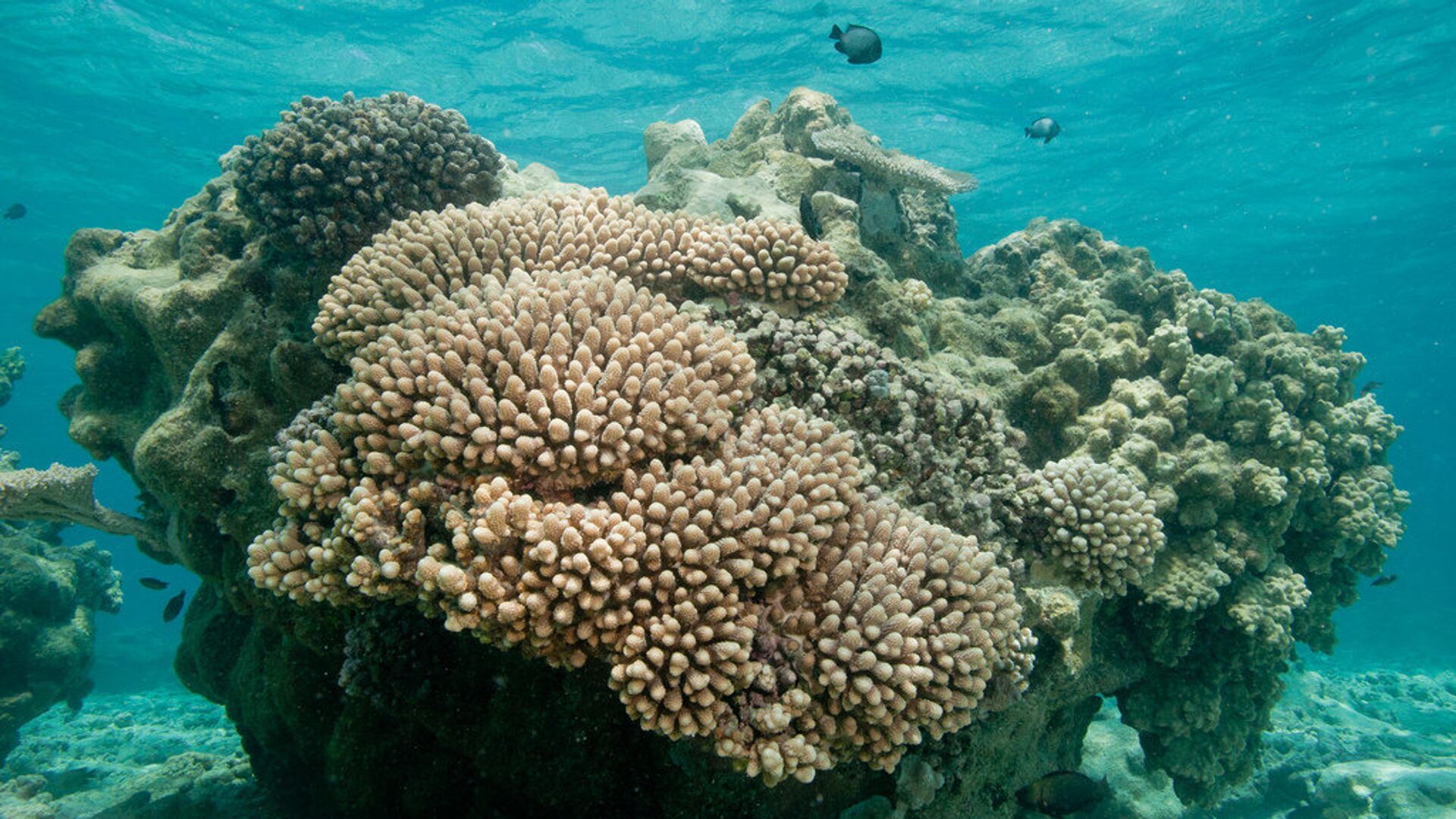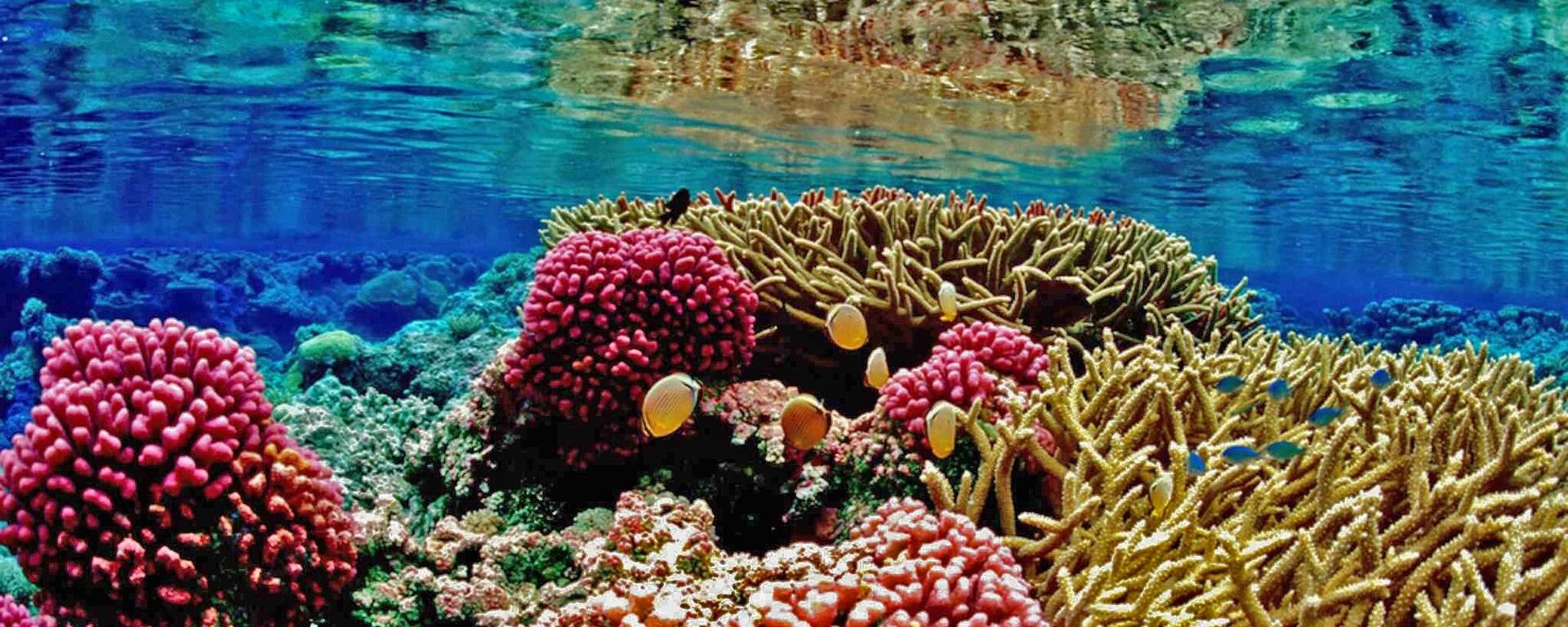https://sputnikglobe.com/20230801/great-barrier-reefs-heritage-status-at-risk-amid-pollution-and-climate-threats-1112317446.html
Great Barrier Reef's Heritage Status at Risk Amid Pollution and Climate Threats
Great Barrier Reef's Heritage Status at Risk Amid Pollution and Climate Threats
Sputnik International
Australia has been advocating for the protection of the Great Barrier Reef for a long time. The reef is essential for the economy, adding around $4 billion to its economy and sustaining 64,000 jobs. However, if the reef gets classified as endangered, it may relinquish its heritage status and ward off tourists.
2023-08-01T13:40+0000
2023-08-01T13:40+0000
2023-08-01T13:40+0000
beyond politics
science & tech
newsfeed
anthony albanese
australia
unesco
the united nations (un)
great barrier reef
world
https://cdn1.img.sputnikglobe.com/img/102890/16/1028901687_0:97:1024:673_1920x0_80_0_0_413d08ce7247cf6939c0d4e2f65a6568.jpg
On Tuesday, a UNESCO (the United Nations Educational, Scientific and Cultural Organization) panel refrained from categorizing Australia's Great Barrier Reef as a threatened site. Nevertheless, they highlighted the serious risks the largest coral reef ecosystem faces due to pollution and rising ocean temperatures.According to a study, the reef contributed $6.4 billion and more than 64,000 jobs (mostly from tourism) to the Australian economy between 2015 and 2016.In November, UNESCO proposed adding the reef to the endangered list due to the frequent occurrence of coral discoloration.Australia's Great Barrier Reef, located on the northeast coast, is a phenomenal and diverse zone. It is the most significant coral reef ecosystem and is home to an impressive array of marine life, including 400 coral types, 1,500 fish species, and 4,000 mollusk varieties, according to UNESCO. Scientists find it fascinating because it is a habitat for vulnerable animal species like the dugong ("sea cow") and the large green turtle. The reef is teeming with several marine life forms and stretches from the coastline 250 kilometers out into the ocean.In a recent publication, the panel appreciated the Australian government's efforts and the initial measures taken to conserve the reef.Australian Prime Minister Anthony Albanese stated that a draft decision acknowledges the notable progress in tackling climate change, water quality, and sustainable fishing. These efforts help protect the reef and maintain sustainably. He admitted that the UNESCO draft decision didn't completely resolve the reef's situation, and emphasized the need for more actions to safeguard it from being labeled as threatened.Australia’s government promised to give more than $795 million to safeguard the reef. They cut off federal monetary allocation for dams and declined coal mining permission that might have spoiled the reef's water quality.The UN delegation wants the government to give an update on its progress by February 2024.
https://sputnikglobe.com/20230722/florida-keys-coral-reefs-are-bleaching-due-to-record-high-temperatures-1112082590.html
australia
great barrier reef
world
Sputnik International
feedback@sputniknews.com
+74956456601
MIA „Rossiya Segodnya“
2023
Sputnik International
feedback@sputniknews.com
+74956456601
MIA „Rossiya Segodnya“
News
en_EN
Sputnik International
feedback@sputniknews.com
+74956456601
MIA „Rossiya Segodnya“
Sputnik International
feedback@sputniknews.com
+74956456601
MIA „Rossiya Segodnya“
unesco panel, great barrier reef, threatened site, australia, pollution, rising ocean temperatures, heritage status, endangered list, coral discoloration, conservation efforts, climate change, water quality, sustainable fishing, australian government, reef protection, un delegation, progress update, world wide fund for nature-australia, probation
unesco panel, great barrier reef, threatened site, australia, pollution, rising ocean temperatures, heritage status, endangered list, coral discoloration, conservation efforts, climate change, water quality, sustainable fishing, australian government, reef protection, un delegation, progress update, world wide fund for nature-australia, probation
Great Barrier Reef's Heritage Status at Risk Amid Pollution and Climate Threats
Australia has been advocating for the protection of the Great Barrier Reef for a long time. The reef is essential, adding around $6.4 billion to the country’s economy and sustaining 64,000 jobs. However, if the reef gets classified as endangered, it may relinquish its heritage status and ward off tourists.
On Tuesday, a UNESCO (the United Nations Educational, Scientific and Cultural Organization) panel refrained from categorizing Australia's
Great Barrier Reef as a threatened site. Nevertheless, they highlighted the serious risks the largest coral reef ecosystem faces due to pollution and rising ocean temperatures.
According to a
study, the reef contributed $6.4 billion and more than 64,000 jobs (mostly from tourism) to the Australian economy between 2015 and 2016.
In November, UNESCO proposed adding the reef to the endangered list due to the frequent occurrence of
coral discoloration.
Australia's Great Barrier Reef, located on the northeast coast, is a phenomenal and diverse zone. It is the most significant coral reef ecosystem and is home to an impressive array of marine life, including 400 coral types, 1,500 fish species, and 4,000 mollusk varieties, according to UNESCO. Scientists find it fascinating because it is a habitat for vulnerable animal species like the dugong ("sea cow") and the large green turtle. The reef is teeming with several marine life forms and stretches from the coastline 250 kilometers out into the ocean.
In a recent publication, the panel appreciated the Australian government's efforts and the initial measures taken to conserve the reef.
Australian Prime Minister Anthony Albanese stated that a draft decision acknowledges the notable progress in tackling climate change, water quality, and sustainable fishing. These efforts help protect the reef and maintain sustainably. He admitted that the UNESCO draft decision didn't completely resolve the reef's situation, and emphasized the need for more actions to safeguard it from being labeled as threatened.
Australia’s government promised to give more than $795 million to safeguard the reef. They cut off federal monetary allocation for dams and declined coal mining permission that might have spoiled the
reef's water quality.
The UN delegation wants the government to give an update on its progress by February 2024.



